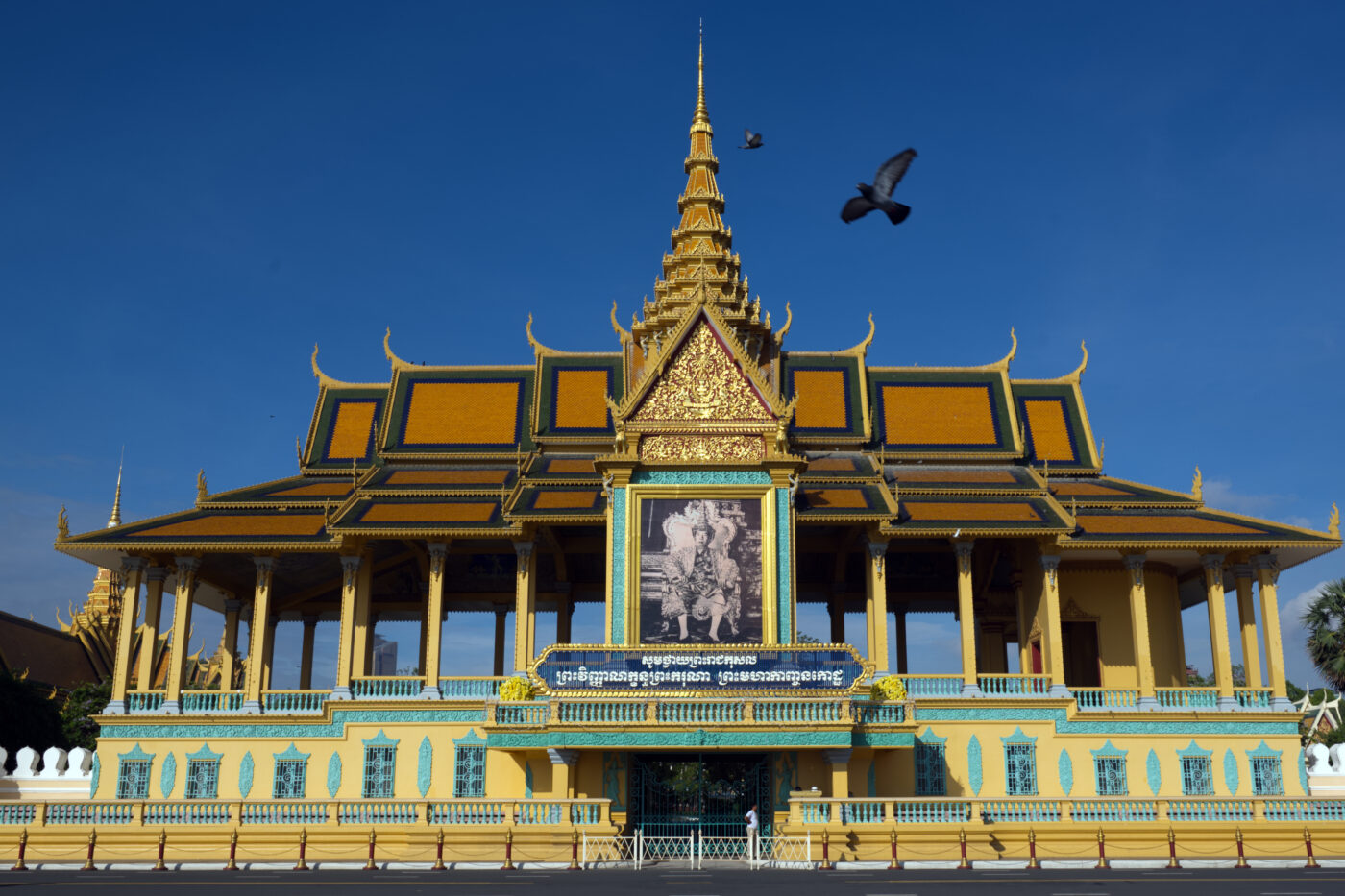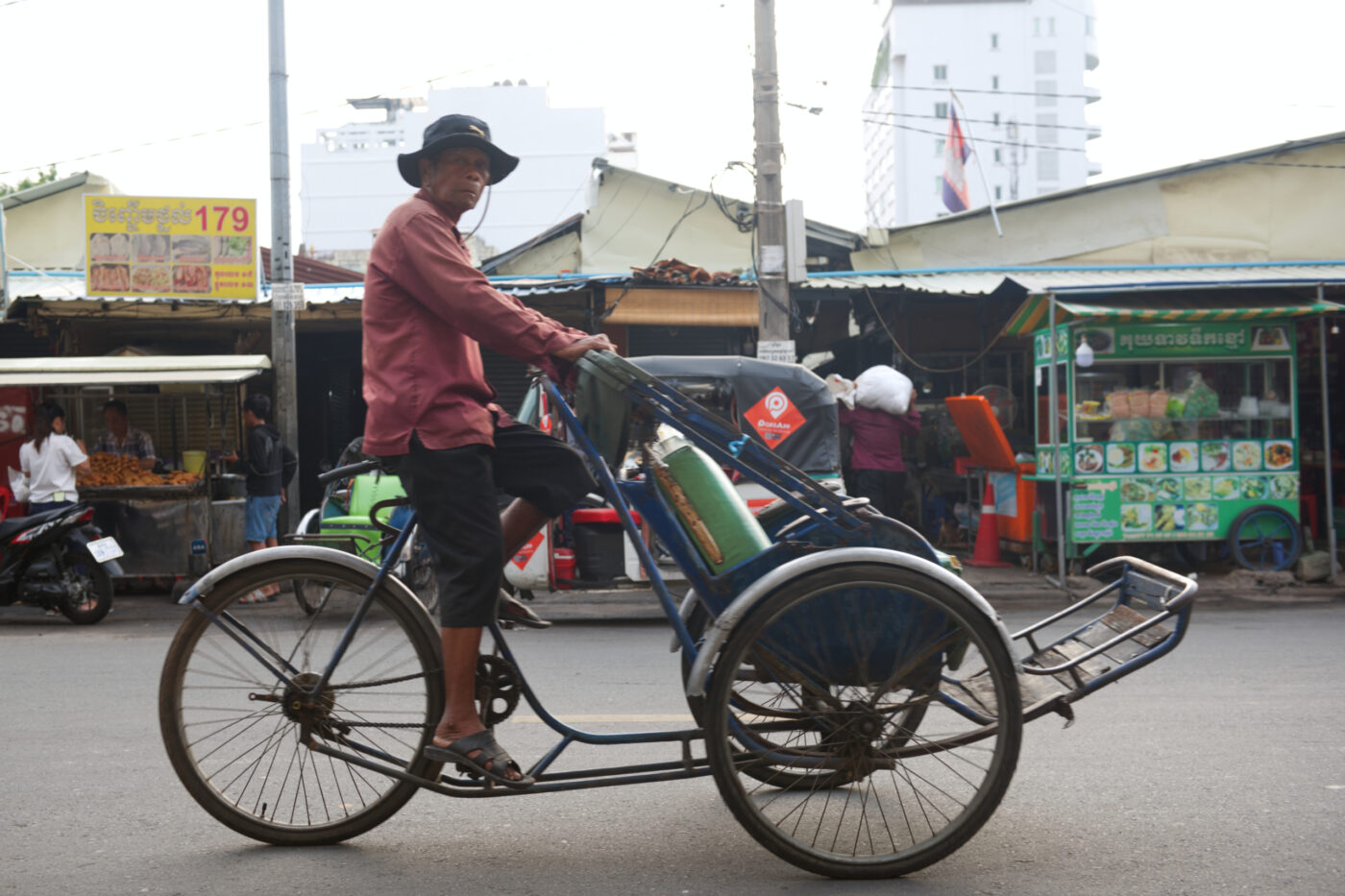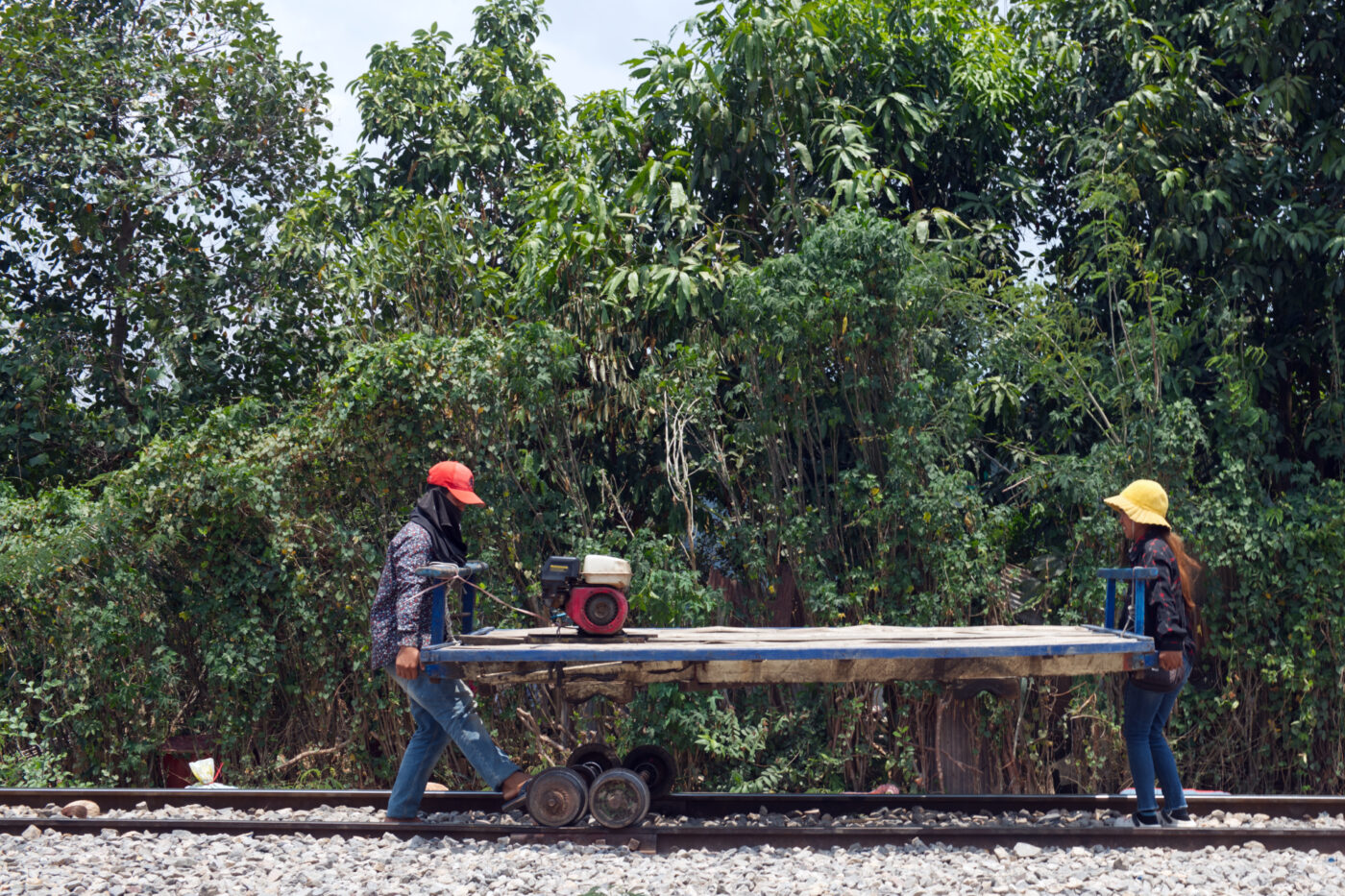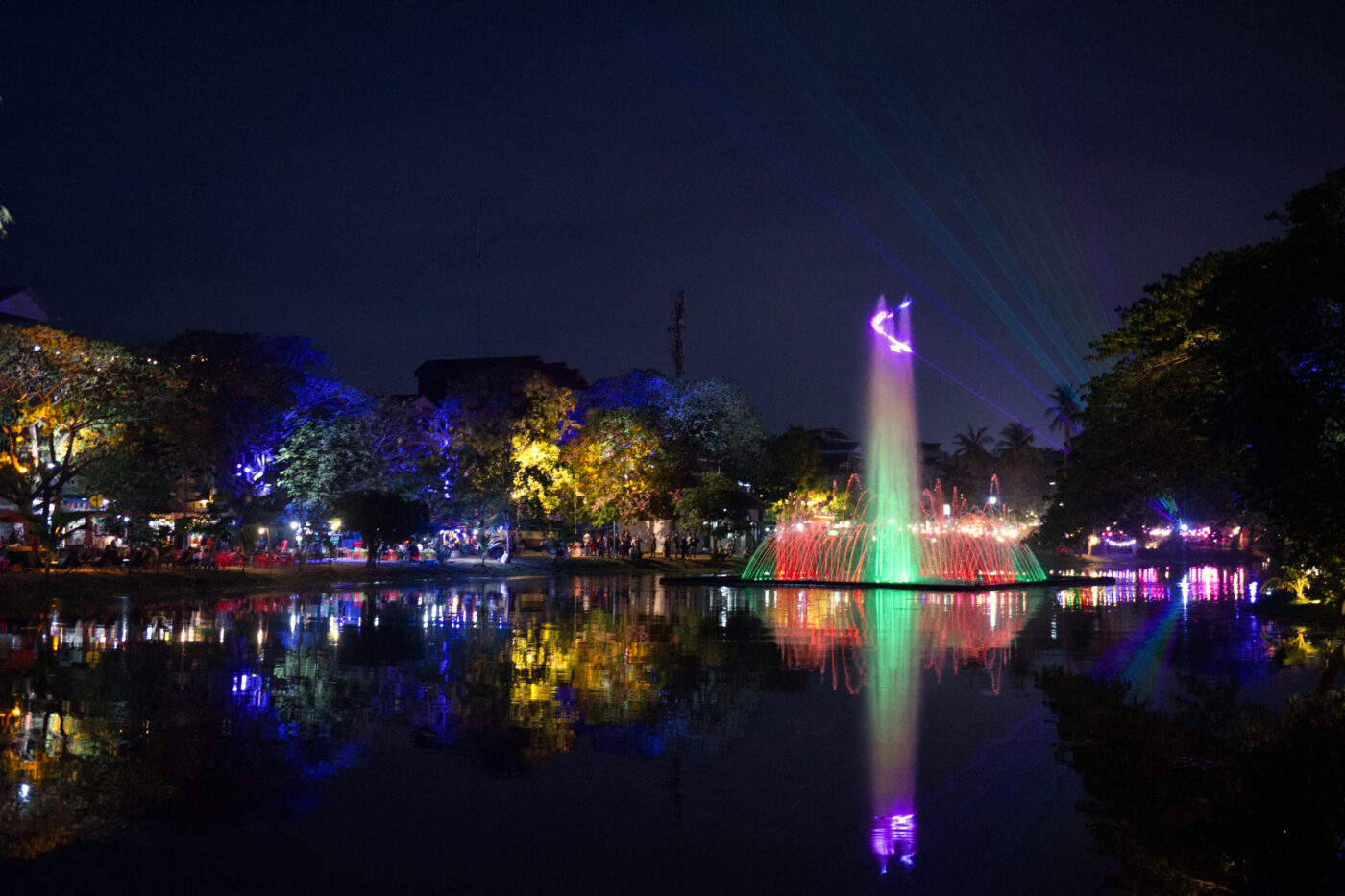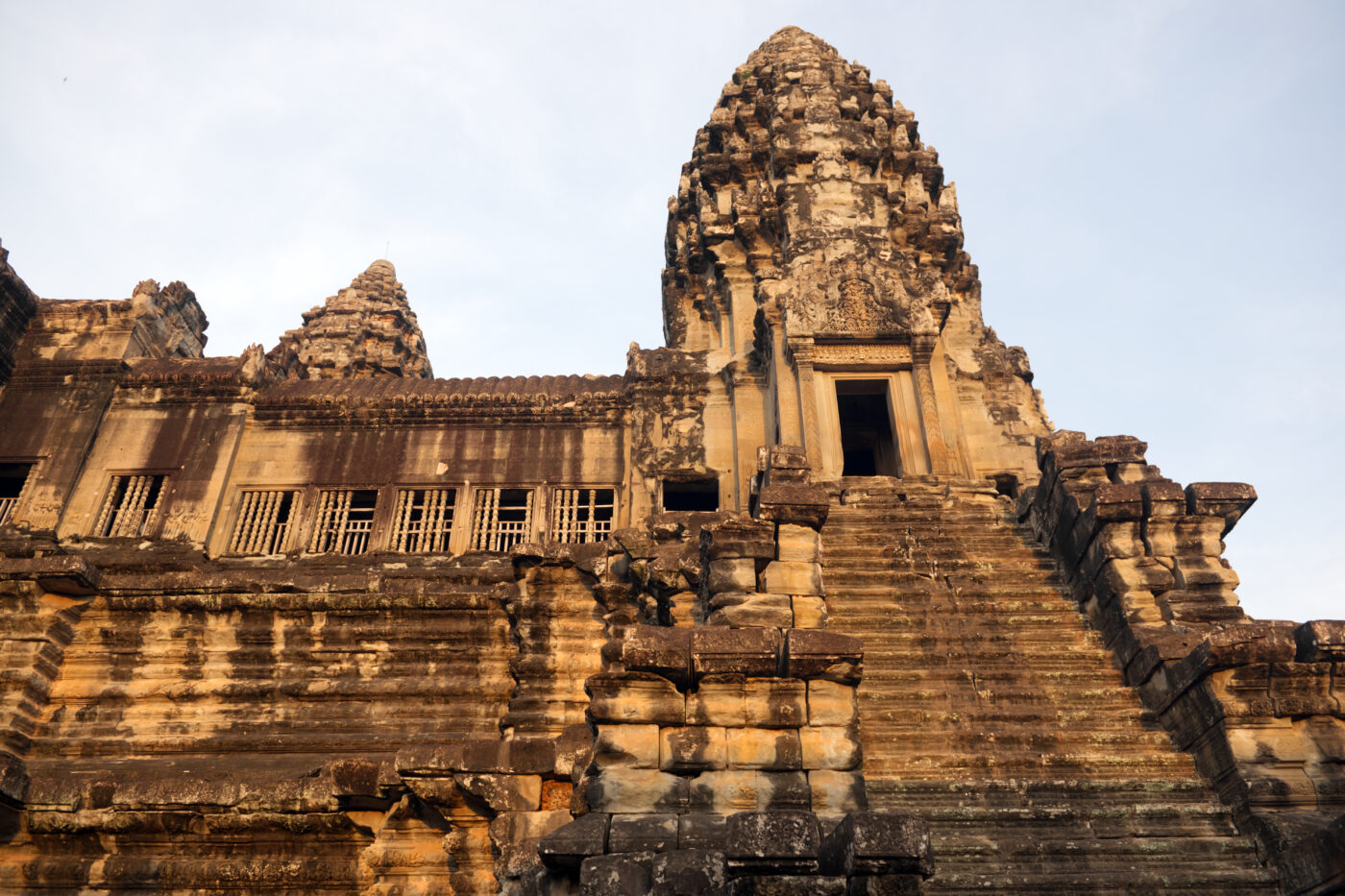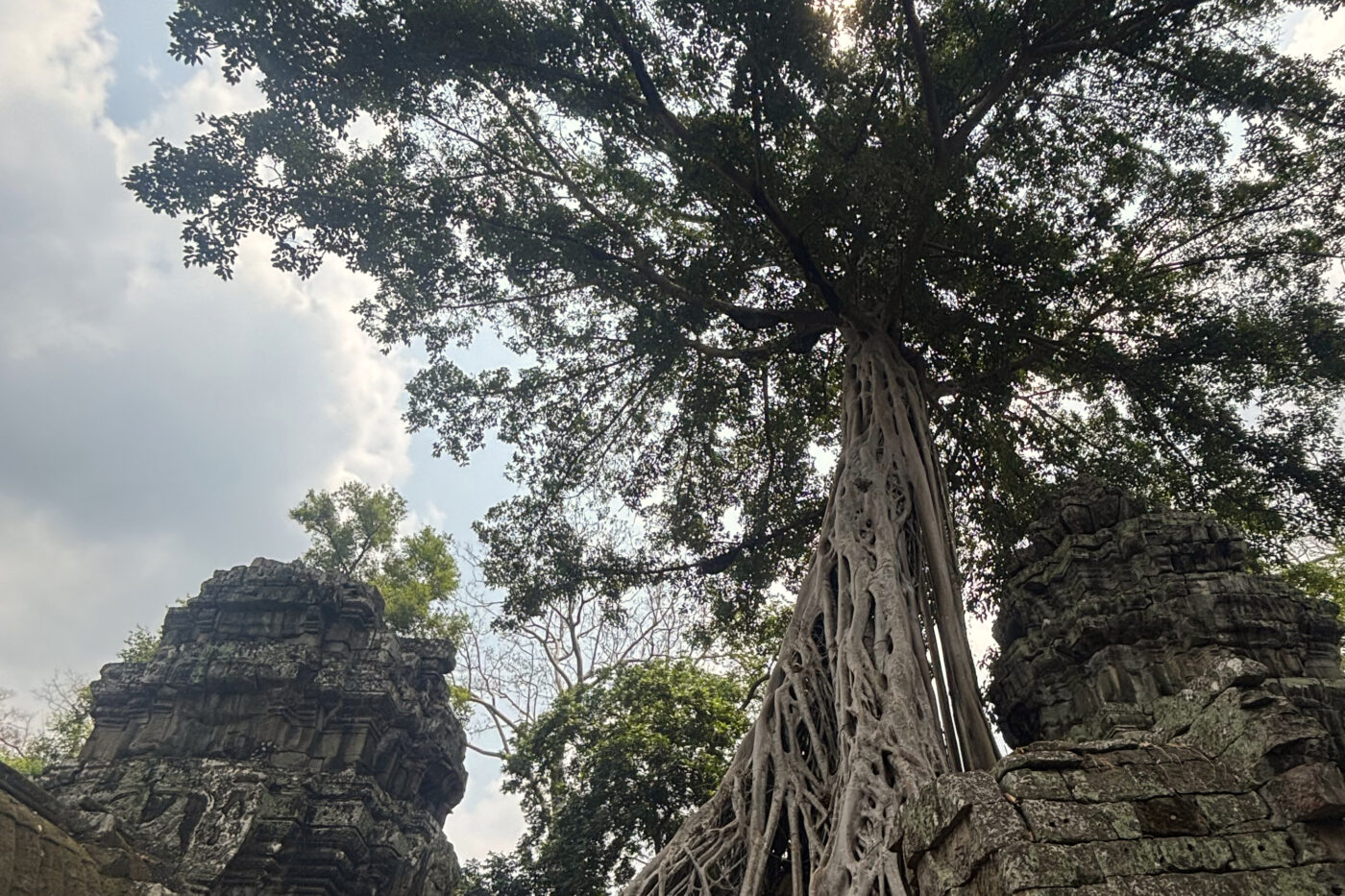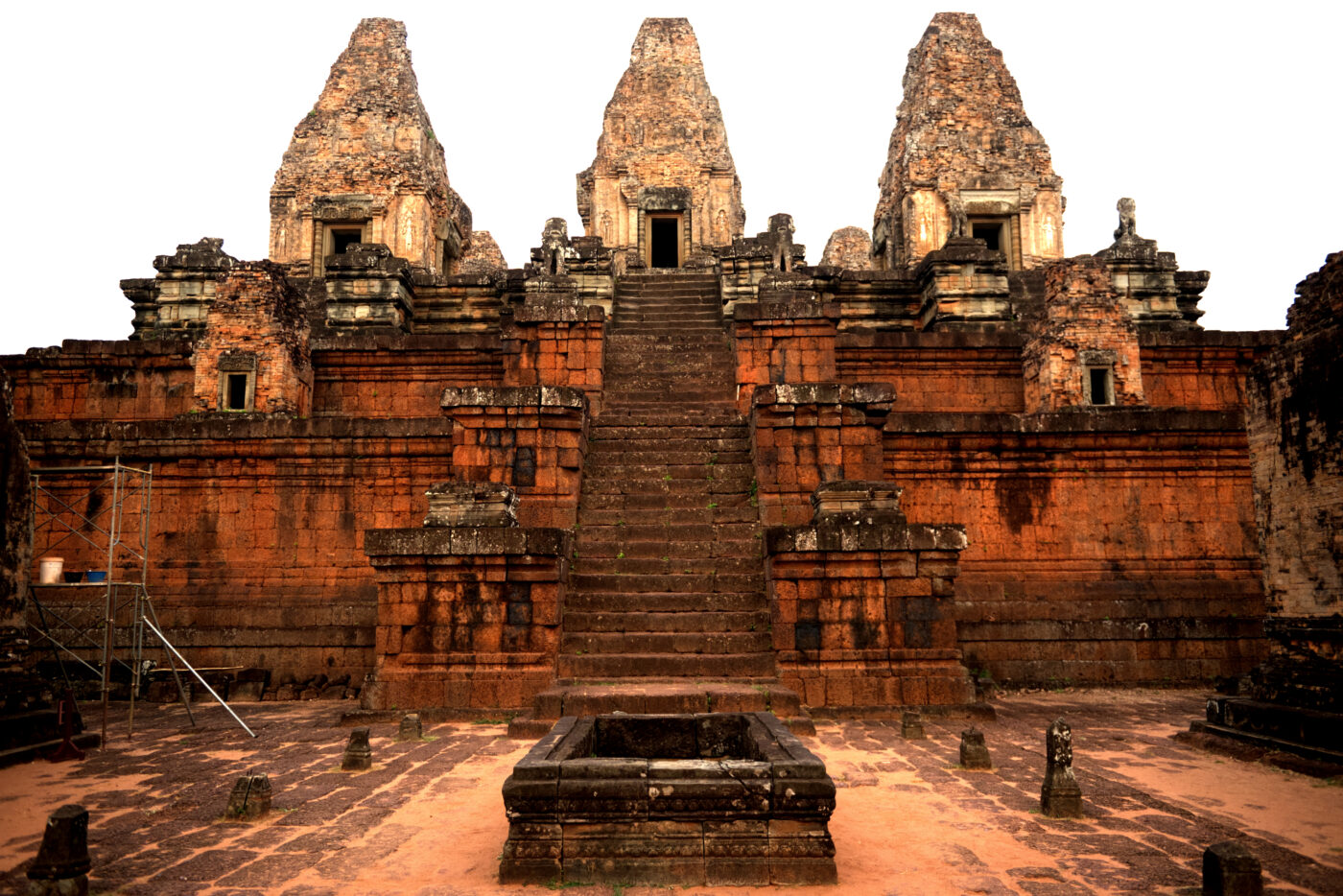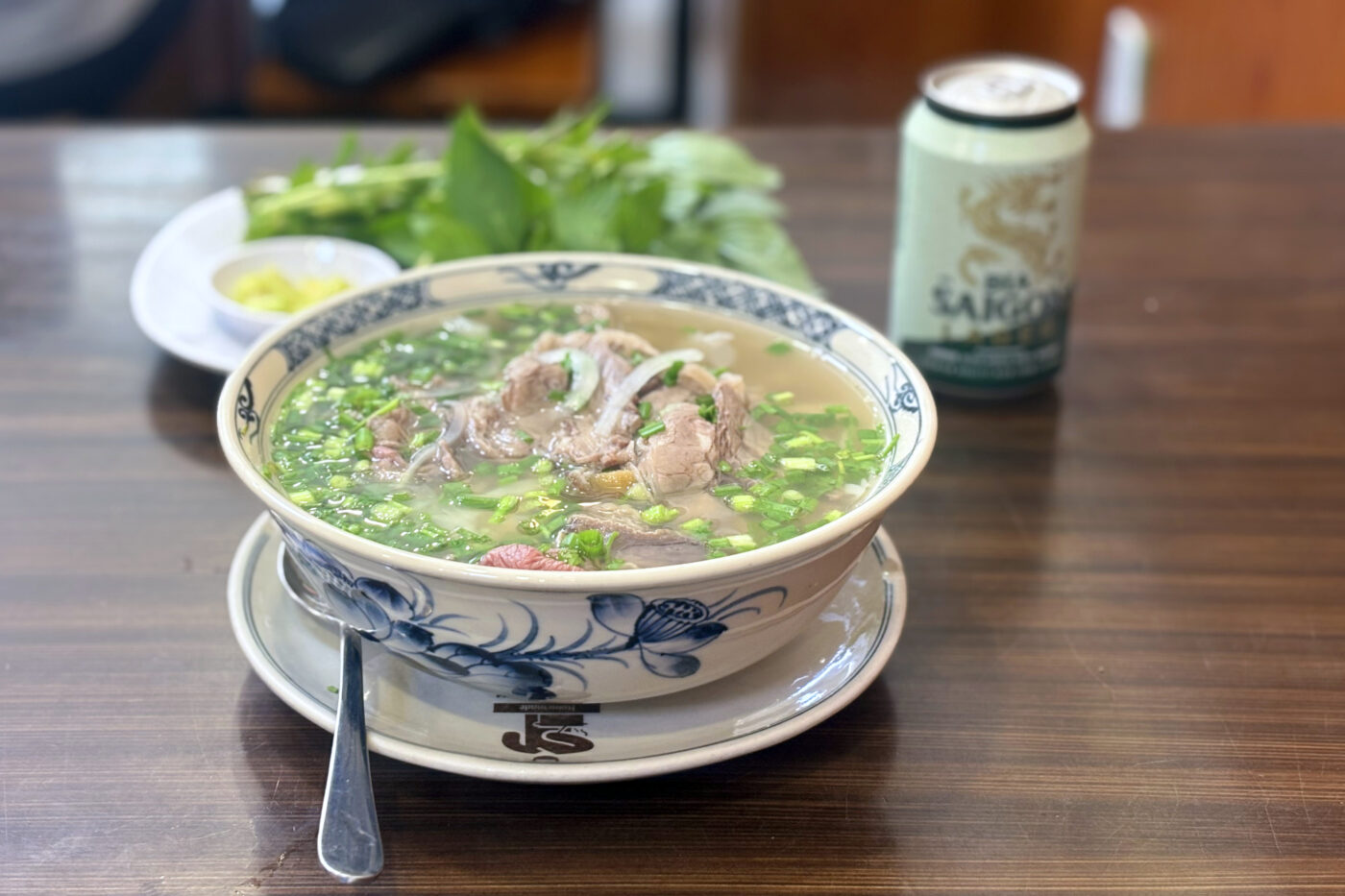Today marks the beginning of my journey through Indochina — a region once ruled by France and now encompassing Vietnam, Laos, and Cambodia. While each country has its own distinct culture and history, they share a common legacy of colonialism, war, and a long struggle for independence. France’s foothold in the region began with 19th-century military campaigns in Vietnam and gradually expanded into broader colonial rule.
I’m still recovering from jet lag and kept waking up after 1 a.m. Eventually, I gave in and dragged myself out of bed around five to take a stroll around the neighborhood. Surprisingly, I wasn’t the only one up. By six, the city was already humming — street vendors were setting up, people were out on motorbikes, and the day was clearly underway.
This morning I had breakfast and three coffees — the tiny Vietnamese-style ones. Still, both my waiter and the waitress laughed at me; they were clearly flummoxed that anyone could drink that many. As I paid, I made sure to share this translated note with them: “Coffee here is good, the glasses are just too small for an American though.” I didn’t want them thinking I was some kind of weirdo. It’s not me — it’s the American in me.
As a farewell to Phnom Penh, I went on one last photo walk. I found a busy street in front of Kandal Market, a local open-air market, tucked myself behind a parked car, and started photographing passersby as they walked, biked, and motorbiked past. I caught a neat shot of a rickshaw just as the rider cruised by. It’s not the sharpest photo I’ve ever taken, but I liked that he turned his head right as I hit the shutter. I love capturing people’s natural, unfiltered expressions — those fleeting little moments when they either don’t know, or have just realized, they’re being photographed.
The day started early and didn’t slow down. I’d booked a full-day tour to see the countryside and some of the area’s cultural landmarks. Before hitting the road, I fueled up with a big breakfast from a roadside spot near my hotel. It looked simple, but the food was fantastic — way better than the upscale place I tried yesterday. A stray dog wandered around the tables, and I couldn’t resist slipping him a few bites before I left.
Today I arrived in Siem Reap, a little city in northwestern Cambodia. While the town itself is known for its markets and nightlife, most tourists visit for one reason: to visit Angkor Wat. I’ll be here for five days and four nights, so I let myself ease into things.
This morning I visited Angkor Wat — Cambodia’s most iconic temple and the largest religious monument in the world. It was built in the early 12th century during the height of the Khmer Empire, which once stretched across much of mainland Southeast Asia, including present-day Cambodia, Thailand, Laos, and southern Vietnam. Angkor served as the empire’s capital and spiritual center, and Angkor Wat itself was originally constructed as a Hindu temple before gradually transitioning to Buddhism.
Before heading back into the park, I realized I had only scratched the surface of the Small Circuit. It turns out the Small Circuit is actually pretty big — and there was no way I’d have time to even think about the Grand Circuit today. That said, below are some highlights from this visit.
Today was my last full day in Cambodia, and I wanted to make the most of it. I woke up early again to catch the sunrise at the park — this time at sites along the Grand Circuit, a wider loop of temples that stretches beyond the more tourist-heavy Small Circuit. While the Small Circuit covers the most iconic and well-known temples, such as Angkor Wat, the Grand Circuit offers a quieter, more low-key experience, with temples that are more spread out and often less restored. I like to think of it as the park’s more rustic, unadulterated side.
Vietnam was the cornerstone of French Indochina. Of the three territories colonized by France — Vietnam, Laos, and Cambodia — Vietnam was the most populous, the most economically developed, and the most politically central to French ambitions in Southeast Asia. The French divided it into three administrative regions: Tonkin in the north, Annam in the center, and Cochinchina in the south — each governed separately to weaken any sense of national unity.



